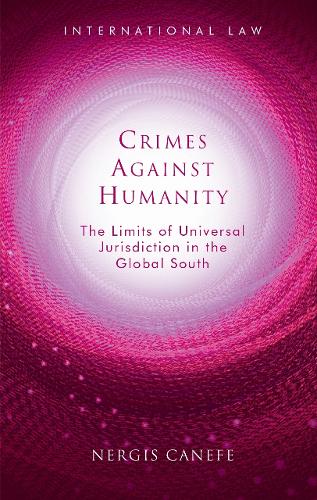
Crimes Against Humanity: The Limits of Universal Jurisdiction in the Global South
(Hardback)
Publishing Details
Crimes Against Humanity: The Limits of Universal Jurisdiction in the Global South
By (Author) Nergis Canefe
University of Wales Press
University of Wales Press
23rd July 2021
15th April 2021
United Kingdom
Classifications
Professional and Scholarly
Non Fiction
Public international law: responsibility of states and other entities
Public international law: criminal law
Public international law: humanitarian law
345.0235
Physical Properties
Hardback
336
Width 138mm, Height 216mm
Description
Currently, there is an engorging fascination with and heightened expectations from international legal accountability. Crimes Against Humanity examines whether international criminal law, in particular legislation and institutions pertaining to war crimes and crimes against humanity, is equipped to be a panacea for the ills of the recalcitrant nation-state system. The main thread that runs through the text is to determine the ultimate aim and efficacy of adjudicating some of the most egregious infractions of the internationally sanctioned human rights regime. While international criminal law strives to develop a shared understanding of, and golden standards for, acceptable behavior of states and governments, it also suffers from a degree of institutional idealism pertaining to current accountability regimes in public international law. Focusing on the Global South, it also examines the problem-laden notion of collective responsibility for societal and political mass crimes and questions the merits of disproportionate reliance on international criminal law in the aftermath of civil wars, ethnic cleansing, genocidal violence, and mass exodus.
Author Bio
Nergis Canefe is Professor of Politics, Public Policy and Law, York University, Canada.
